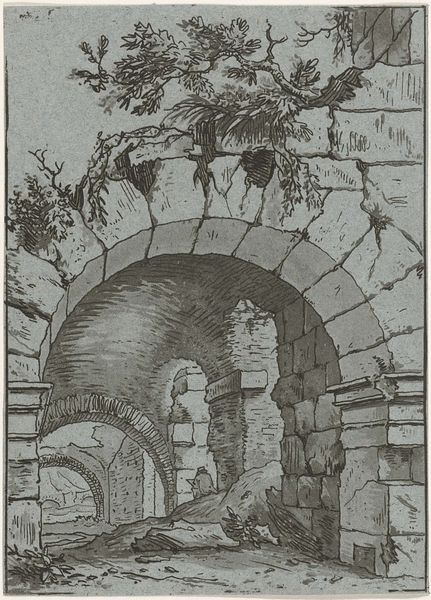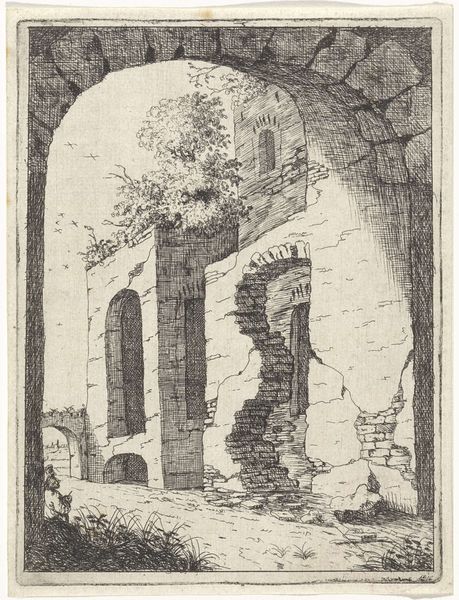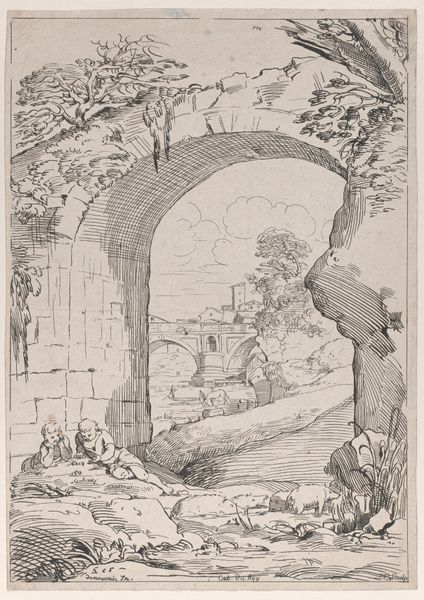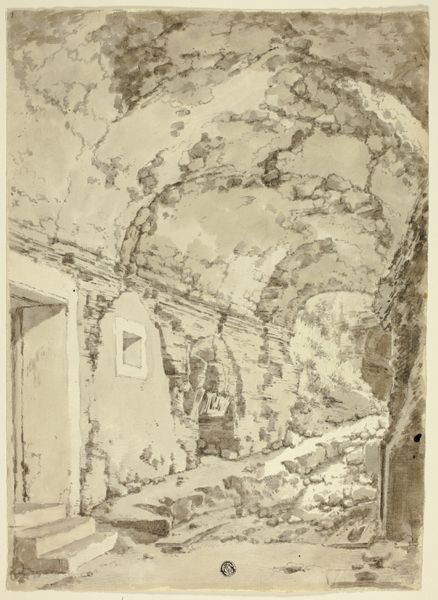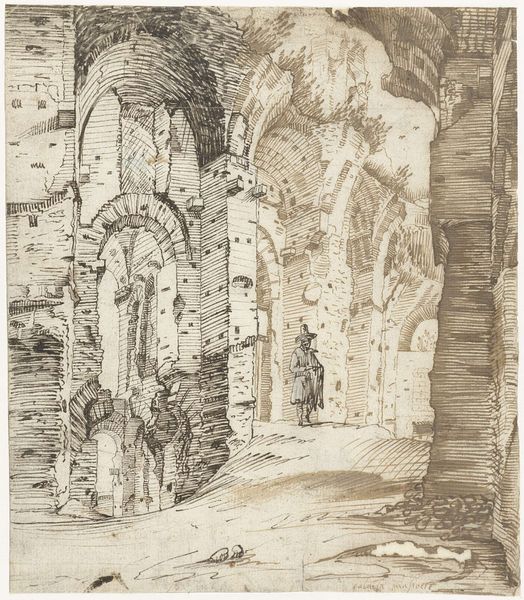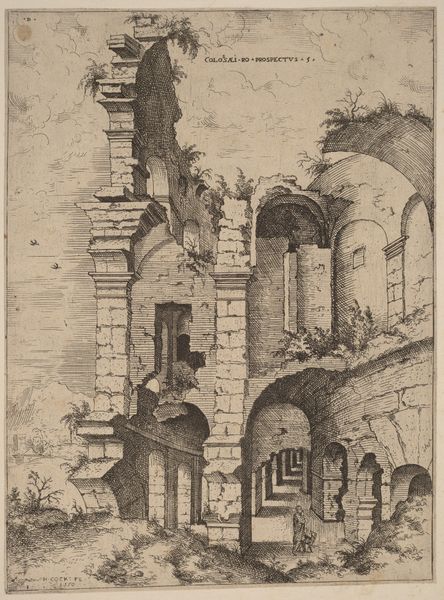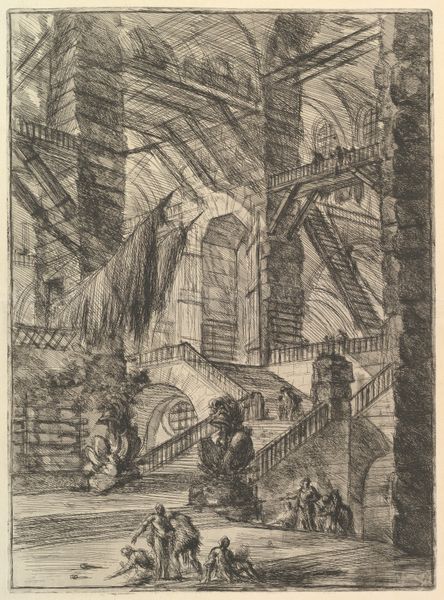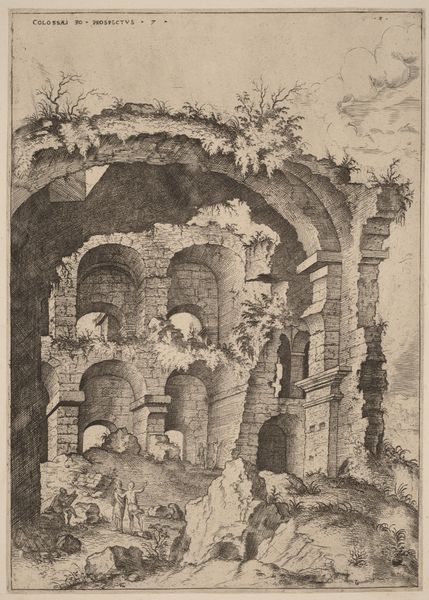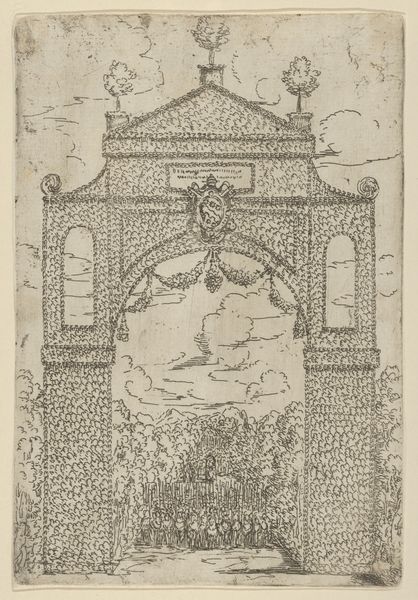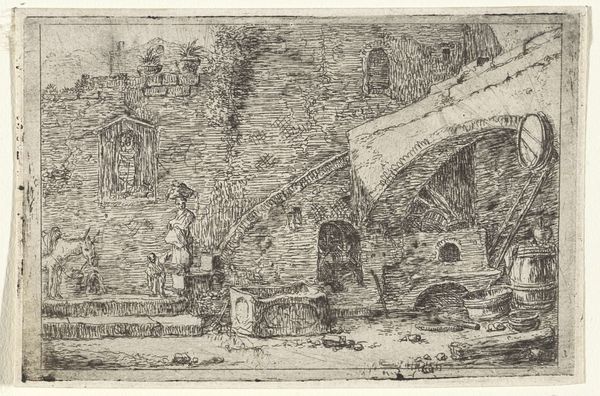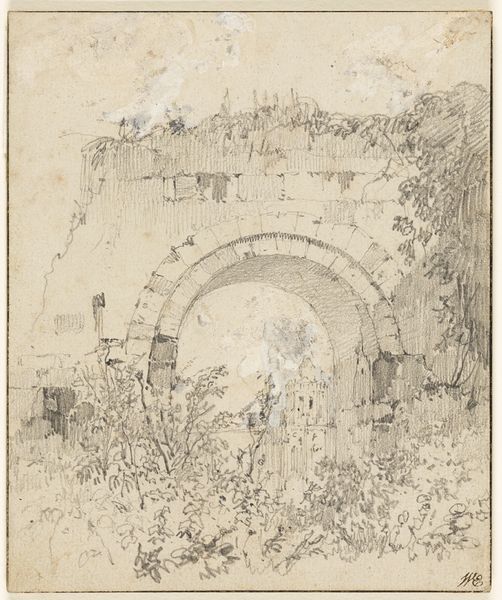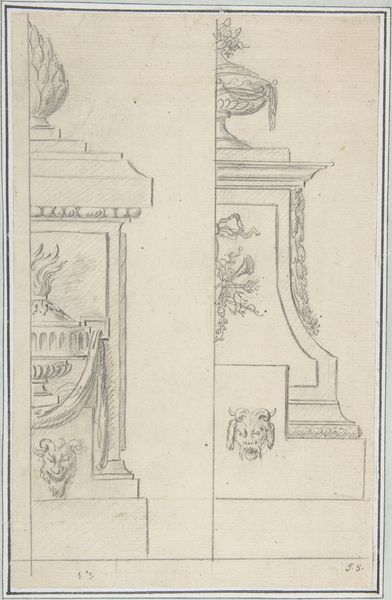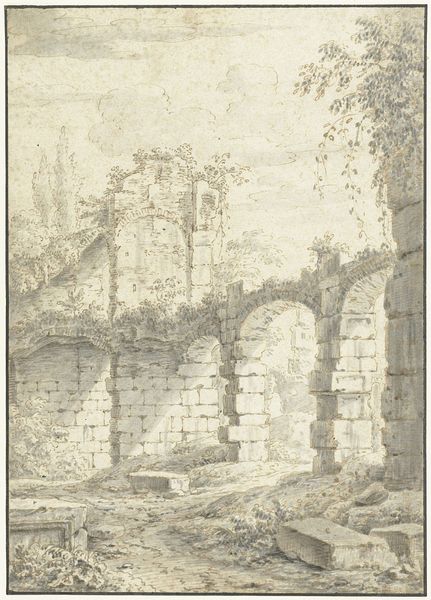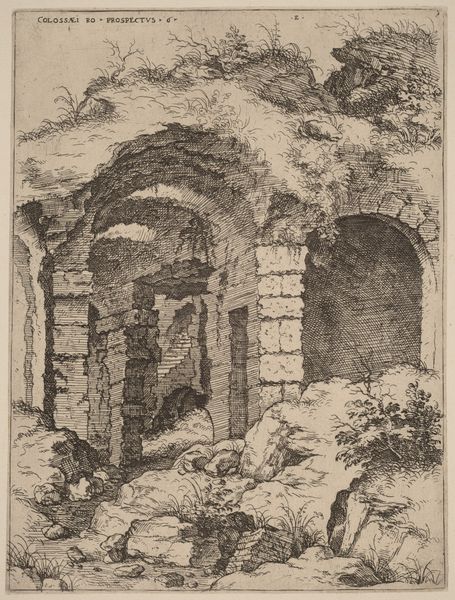
drawing, ink, pen
#
drawing
#
quirky sketch
#
mechanical pen drawing
#
pen sketch
#
landscape
#
form
#
personal sketchbook
#
ink
#
sketchwork
#
geometric
#
ancient-mediterranean
#
pen-ink sketch
#
line
#
pen work
#
sketchbook drawing
#
pen
#
storyboard and sketchbook work
#
sketchbook art
Dimensions: height 149 mm, width 107 mm
Copyright: Rijks Museum: Open Domain
Editor: This is Hermanus Fock's "Tekenaar in het Colosseum," made between 1781 and 1822, and held here at the Rijksmuseum. It’s an ink and pen drawing, and I'm really struck by how detailed it is, especially for a sketch. What cultural memories does this drawing evoke for you? Curator: For me, the Colosseum itself acts as a powerful symbol. It embodies the rise and fall of empires, doesn’t it? Its ruined state speaks volumes about the ephemeral nature of power, doesn’t it? But what's more, the artist in the drawing signals another cultural touchstone: the Grand Tour. Do you see him there, small, amidst the colossal ruins? Editor: Yes, he seems so tiny compared to the architecture. Almost overwhelmed. Curator: Precisely. He represents a northern European cultural elite traveling to absorb classical culture. And what does he choose to depict? Not the glory of Rome, but its ruins. There’s a certain melancholy embedded in that choice, isn’t there? What do you make of the foliage growing out of the stone? Editor: I hadn't thought of that. Maybe the plants represent nature reclaiming what was once human-made. So, the artist captures a moment of transition, a meditation on time? Curator: Precisely! And that image becomes part of our own cultural memory of the Colosseum. Each mark, each line, contributes to the emotional weight it carries across time. It is no longer just an amphitheater. Editor: It's amazing how a simple sketch can contain so much meaning. It really makes you think about how we view the past, and the symbols we use to remember it. Thanks for sharing that!
Comments
No comments
Be the first to comment and join the conversation on the ultimate creative platform.
